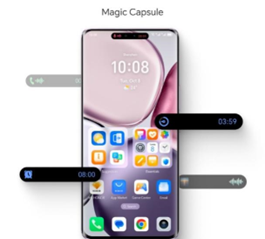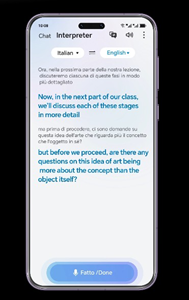AI Features Changing the Smartphone Experience
Artificial intelligence (AI) is making smartphones smarter, more intuitive, and personalized. Artificial intelligence enables smartphones to predict user behavior and perform tasks more effectively. AI advances to meet contemporary customer needs, such as improving photo quality and battery life. AI enhances smartphone functions, allowing for more intelligent and seamless interactions. AI is making our devices smarter and more capable, changing the way we use them.

How Is AI Making Your Phone Smarter?
AI-Powered Photography Enhancements
AI enhances smartphone images by automatically adjusting exposure, contrast, and saturation. AI improves camera settings in real-time based on various conditions and topics. It enhances portrait mode, background blur, and low-light images. This makes every shot look professional, even if the photographer is not technically proficient. AI-powered innovations make it simple to capture memories and produce stunning photos with a single swipe.
Voice Assistants and Natural Language Processing
NLP has enhanced voice assistants, enabling smartphones to understand and respond to human speech. This allows consumers to command, ask, and communicate with their gadgets. Improved NLP technology makes voice assistants more contextually aware and responsive. It is faster and easier to set reminders, send messages, and manage applications. Voice assistants will become more efficient, customizable, and hands-free as AI advances.
Smart Battery and Performance Optimization
AI recognizes usage habits and changes phone settings to conserve battery. It can identify which apps consume the most power and propose energy-saving alternatives. AI also optimizes system resources to keep applications running smoothly while conserving electricity. AI can predict when you should charge your device and adjust screen brightness and app refresh rates. This performance boost keeps your smartphone running smoothly all day.

Which AI Features Are Users Actually Using Daily?
On-Device Personalization and App Suggestions
Smartphones utilize artificial intelligence to learn about user behavior and recommend apps. Based on your usage, AI can offer apps, shortcuts, and settings that increase the efficiency and customization of your phone. This customization simplifies smartphone navigation, allowing users to spend less time looking for apps and more time enjoying their devices. Users should anticipate increasingly sophisticated capabilities that improve productivity and experience as AI becomes more natural.
AI Call Screening and Spam Detection
Users are increasingly relying on AI-powered call screening and spam detection to prevent unsolicited calls. Machine learning algorithms on smartphones can filter or warn users of spam or fraudulent calls. Users benefit from the technology's convenience and protection against fraud and robocalls. AI call screening keeps users focused on important calls and away from superfluous or risky ones, making phone use safer and more efficient.
Real-Time Translation and Captioning
AI-powered translation and captioning are widely used for real-time accessibility. These technologies display subtitles during video chats or media playing, allowing for multilingual discussions or real-time comprehension. AI instantly translates speech and text, facilitating worldwide communication. This tool helps travelers, language learners, and multicultural folks have a more inclusive and efficient experience.
What's Next for AI in Smartphones?
AI in Augmented Reality and Spatial Computing
AI will improve AR and spatial computing by increasing the immersion and interactivity of smartphone experiences. AI-powered augmented reality apps can recognize people, places, and objects and seamlessly incorporate them into reality. Users may interact with virtual objects in real life, which expands gaming, education, and retail opportunities. Smartphones will evolve into spatial computing centers as AI and AR technologies improve, altering how we interact with our environment.
Privacy-Preserving AI and Edge Computing
Smartphone AI will leverage privacy-preserving techniques such as edge computing. AI can safeguard user privacy by processing data on-device rather than transferring it to cloud servers. We can securely manage sensitive data, such as facial recognition and health measures, without jeopardizing privacy. Edge computing enables AI to evolve while preserving user data, making devices safer and more trustworthy. In the age of AI, this is critical for privacy.
Generative AI for Text, Art, and Productivity
Generative AI can help improve smartphone text, art, and productivity apps. Smartphones will allow users to generate new material instantaneously, such as literature, artwork, and music, using artificial intelligence. Generative AI will make creative and professional operations easier by composing emails, making art, and automating tasks. This enables content creators, businesses, and everyday users to increase productivity, creativity, and engagement, making smartphones more powerful than ever.
Conclusion
AI is rapidly boosting smartphone performance, customization, and security. AI is transforming how we use technology, from improving photos to real-time translations. As AI technology progresses, smartphones will become more responsive, intuitive, and customizable. Devices like the HONOR X9c showcase how AI is already enhancing smartphones, and we can expect even more innovative features as this technology evolves. The future of smartphones is undoubtedly powered by AI, promising an even smarter and more connected world.
-
Latest
 Must-Have Smartphone Features This Year
Must-Have Smartphone Features This YearSmartphones have become vital tools for daily life, providing communication, work, and entertainment. Considering the rapid advancement of technology, 2025 will introduce a remarkable assortment of ad...
-
Next
 The 5-minute Phone Declutter: Organize Your Apps and Mind
The 5-minute Phone Declutter: Organize Your Apps and MindPhones have become the central hub for communication, work, and entertainment in modern life. With constant notifications, apps, and downloads, devices can quickly feel cluttered and overwhelming. A c...
Popular Articles
- Why Do Smartphones Become Anchors in Daily Decision Flow?
- Why Does Refresh Rate Matter Beyond Smooth Scrolling?
- What Makes a Smartphone Feel “Comfortable” to Use Daily?
- The 5-minute Phone Declutter: Organize Your Apps and Mind
- AI Features Changing the Smartphone Experience
- Must-Have Smartphone Features This Year
